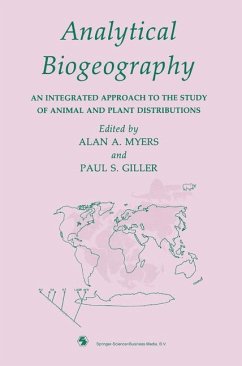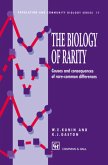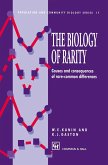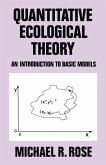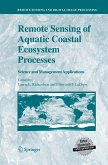Biogeography may be defined simply as the study of the geographical distribution of organisms, but this simple defmition hides the great complexity of the subject. Biogeography transcends classical subject areas and involves a range of scientific disciplines that includes geogra phy, geology and biology. Not surprisingly, therefore, it means rather different things to different people. Historically, the study of biogeogra phy has been concentrated into compartments at separate points along a spatio-temporal gradient. At one end of the gradient, ecological biogeography is concerned with ecological processes occurring over short temporal and small spatial scales, whilst at the other end, historical biogeography is concerned with evolutionary processes over millions of years on a large, often global scale. Between these end points lies a third major compartment concerned with the profound effects of Pleistocene glaciations and how these have affected the distribution of recent organisms. Within each of these compartments along the scale gradient, a large number of theories, hypotheses and models have been proposed in an attempt to explain the present and past biotic distribution patterns. To a large extent, these compartments of the subject have been non-interactive, which is understandable from the different interests and backgrounds of the various researchers. Nevertheless, the distribu tions of organisms across the globe cannot be fully understood without a knowledge of the full spectrum of ecological and historical processes. There are no degrees in biogeography and today' s biogeographers are primarily born out of some other discipline.
Reviews from the Hardback Edition:
`This volume is written by a worldwide group of scientists and superbly edited by Myers and Giller. The book provides an excellent discussion of the theoretical bases of biogeography; moreover, it provides an astute and lucid description of what science, in general, is all about. The treatment of the various aspects of biogeography is diverse yet well balanced.'
Choice
`Biogeography is as basic to biology as evolution, but the subject's development has been hindered by historical constraints... Analytical Biogeography shows that things have changed, and that biogeography can be a fascinating, rigorous and unified subject...'
Nature
`No-one who teaches an advanced course on biogeography should fail to obtain a copy of this book.'
Linnean Society Newsletter
`Deserves the attention of all evolutionary biologists, and of their students. It is one of the few books ... that performs the full sweep through the diverse fundamentals of evolutionary biology, including its strenghs, weaknesses, and some of its loose ends.'
The American Museum of Natural History
`...coverage of topics and approaches is better than one has any right to expect...The result is probably the best book available...'
Evolutionary Theory
`This volume is written by a worldwide group of scientists and superbly edited by Myers and Giller. The book provides an excellent discussion of the theoretical bases of biogeography; moreover, it provides an astute and lucid description of what science, in general, is all about. The treatment of the various aspects of biogeography is diverse yet well balanced.'
Choice
`Biogeography is as basic to biology as evolution, but the subject's development has been hindered by historical constraints... Analytical Biogeography shows that things have changed, and that biogeography can be a fascinating, rigorous and unified subject...'
Nature
`No-one who teaches an advanced course on biogeography should fail to obtain a copy of this book.'
Linnean Society Newsletter
`Deserves the attention of all evolutionary biologists, and of their students. It is one of the few books ... that performs the full sweep through the diverse fundamentals of evolutionary biology, including its strenghs, weaknesses, and some of its loose ends.'
The American Museum of Natural History
`...coverage of topics and approaches is better than one has any right to expect...The result is probably the best book available...'
Evolutionary Theory

